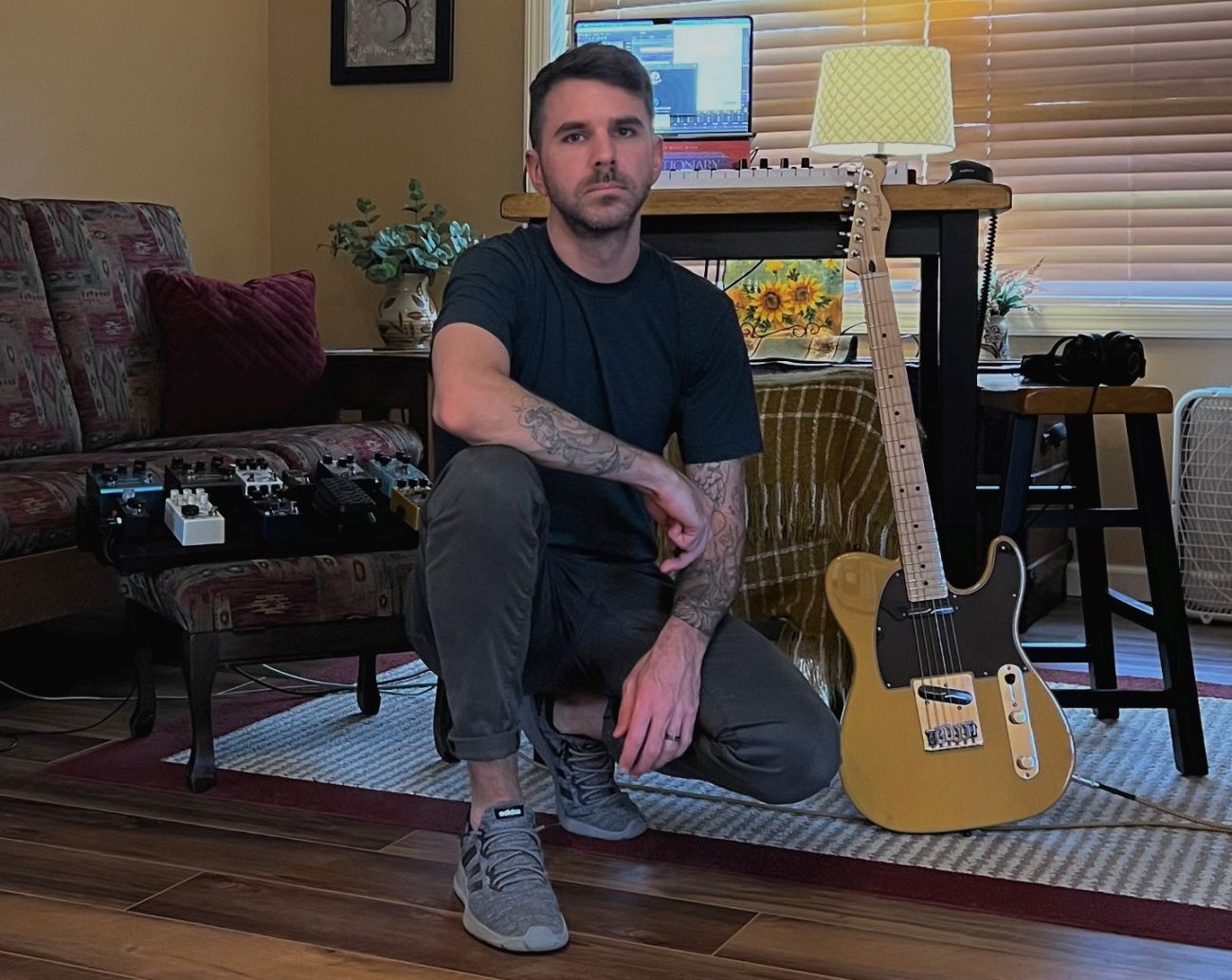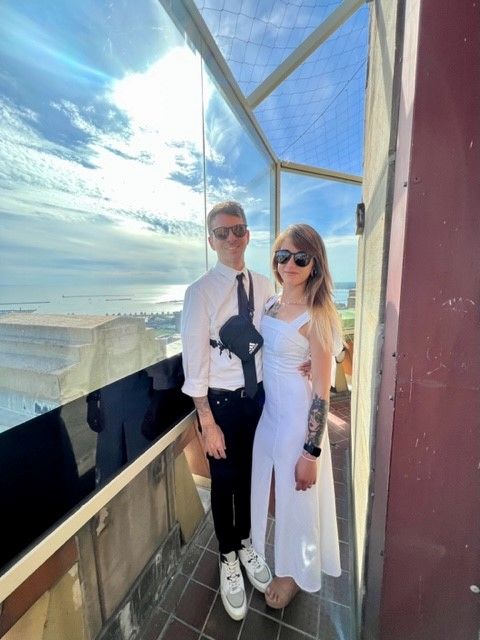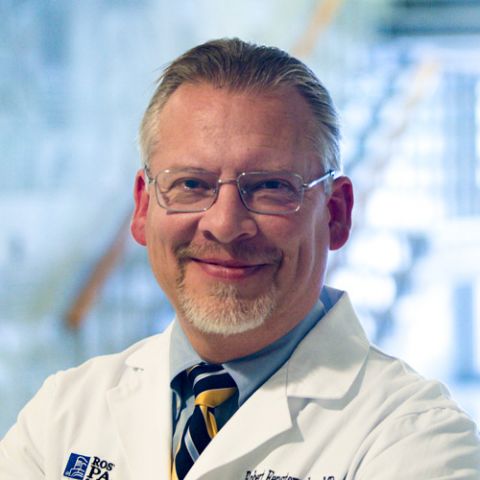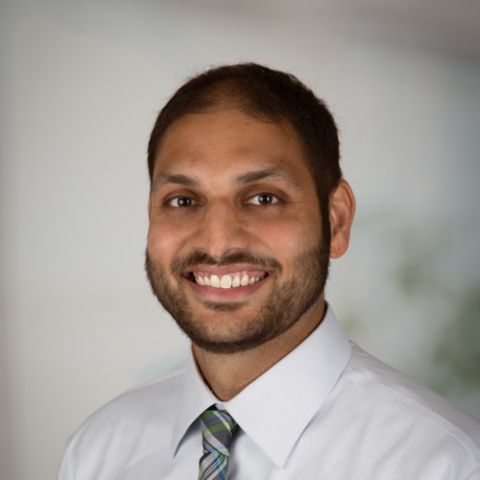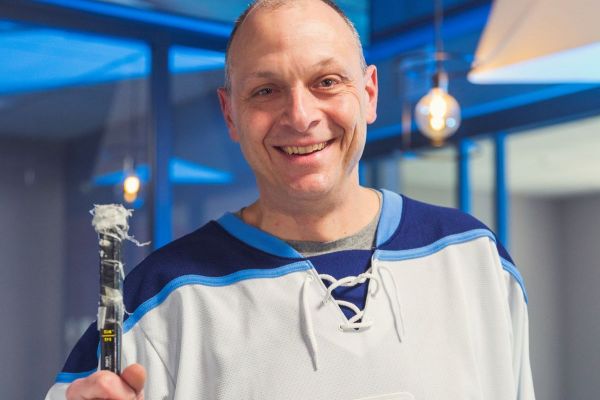Creative people use all their senses for inspiration. Artists who work in music can be just as inspired by visual media as they are their favorite song. But it was a problem with his eyesight that made musician Josh Martin wonder what was wrong.
"A couple of years ago, I started to have these hallucinations, in the lower left field of my vision. They're like strobing flashing light images and really hard to describe. If I turned my head or closed my eyes, they stayed in this field of my vision,” he recalls. But it didn’t happen all the time, and it wasn’t really affecting his life or his ability to create music, so he didn’t mention anything to his doctor. Josh chalked it up to working too hard, maybe spending too much time staring at screens or a passing migraine, which can be accompanied with strobes of light or auras. He visited an optometrist to see if there was a problem with his eyes, but that doctor said it might be visual migraines and to consult a neurologist if they persisted.
"Then I had a really bad one at a concert, and when I looked down at the ground I was seeing things,” he says. "I got really confused and felt like I had taken drugs. Security had to come over with the EMT to help me out.”
His now wife, Alex, had to help him back to their Airbnb room. A few days later Josh went to see his primary care doctor. That doctor suggested he go in for an MRI, noting that his own wife had passed away from a brain tumor.
"He told me when it comes to this kind of thing, he doesn’t play around,” Josh says. When the technicians told him to wait after his MRI, that more photos were needed, and that his doctor was being called, he began to brace for bad news. “They're like, 'What we're going to do is send you over to the emergency room, you're going to stay there and we’re going to get you in front of the neurosurgery team. That’s when the trauma started setting in. I was in shock.”
Calling for Roswell Park’s expertise
With a family history of cancer and aneurisms, a cerebral angiogram was ordered along with a biopsy. There were delays in the procedures and, understandably, Josh started to get worried. “I’d never had panic attacks in my life until this and I was legitimately out of sorts and nervously laughing.” Taking charge of the situation, Alex called Roswell Park Comprehensive Cancer Center and spoke with someone about Josh’s symptoms. Immediately they learned there was an open appointment that day and he could be seen right away.
"No one told me I had cancer to that point, so I thought why do I need to go there,” Josh says. “It was almost like denial, because once I walked into the doors of Roswell Park, it became another level of real.”
The first time they met with Robert Fenstermaker, MD, Chief of the Department of Neurosurgery and Director of the Neuro-Oncology Program, it was confirmed: Josh had a type of brain tumor called oligodendroglioma, that wrapped around his occipital lobe. A biopsy performed a few days later confirmed the diagnosis. “That was a better diagnosis, because it responds better to chemotherapy than astrocytoma, which is more common.”
Surgery to remove the tumor was not the top recommendation, especially because there was a risk of going blind in the eye where he’d seen those hallucinations and flashes. Instead, Josh opted for chemotherapy and radiation. He received part of his treatment, proton radiation therapy, at MD Anderson Cancer Center in Texas, which pioneered the treatment. Like Roswell Park, it is also a National Cancer Institute-designated comprehensive cancer center. His Roswell Park neuro-oncologist, Ajay Abad, MD, fully supported his decision and stayed in constant contact with Josh’s care team for the six weeks of treatment.
In the midst of the whirlwind of diagnosis and deciding on treatment, Josh and Alex got married, something they originally intended to do after Alex finished her coursework to become a registered nurse. “We’ve been together for about six years now and we lived together and had talked about everything. After this diagnosis, my timeline got shorter, so we decided to just go do it,” he says.
After a brief consultation with Dr. Abad following the radiation therapy, Josh and Alex enjoyed their honeymoon in Jamaica before returning to Buffalo for chemotherapy. His first cycle started in January with a series of oral and IV treatments to follow every few weeks.
Why Roswell Park for brain tumors?
We incorporate the latest technological and medical advances that are at the forefront of cancer care, plus clinicians with the knowledge and experience to use them.
Learn moreMusic as a tool for healing and release
As a musician since elementary school who started writing his own music in high school, both as a solo artist and in bands, Josh came up with a way to foster his creativity while fighting his cancer: Every time he begins a cycle, he creates a new piece of music. “When I got this diagnosis in August, I didn’t do anything for a little bit because it was just too crazy. But I remember the first time I sat down at the computer and played music for a few hours. When I took my headphones off, I started crying because it worked so well to distract me and occupy my mind for that little bit that I escaped all the insanity.”
Each song created during his treatment will be called what it represents: Cycle 1 was released on his Thought Trials Instagram account, under his artist name, and was written and recorded during a weekend getaway in Canada. “I went on this one weekend to get away by myself, just to get out of the normal routine of things in a different environment, like a little retreat. I figured this is a good thing, it would be good for me to do this.” Cycle 2 is set for release May 24.
Being able to walk away from his cancer and treatment, even just for a few days, to create and focus on music creates some normalcy and nurtures the artistic impulses that have driven him for years. He’s also very open on his Instagram account, where his cancer and music journeys are updated regularly, about what’s going on in his life.
“I’ve already had someone reach out to me through Instagram and said they had something found in their brain too, thanking me for sharing my story,” Josh says. “This is very different from all the other music I’ve done before. I feel lucky to have music as a release from all of it. I hope everyone else has something like this.”
Editor’s Note: Cancer patient outcomes and experiences may vary, even for those with the same type of cancer. An individual patient’s story should not be used as a prediction of how another patient will respond to treatment. Roswell Park is transparent about the survival rates of our patients as compared to national standards, and provides this information, when available, within the cancer type sections of this website.
